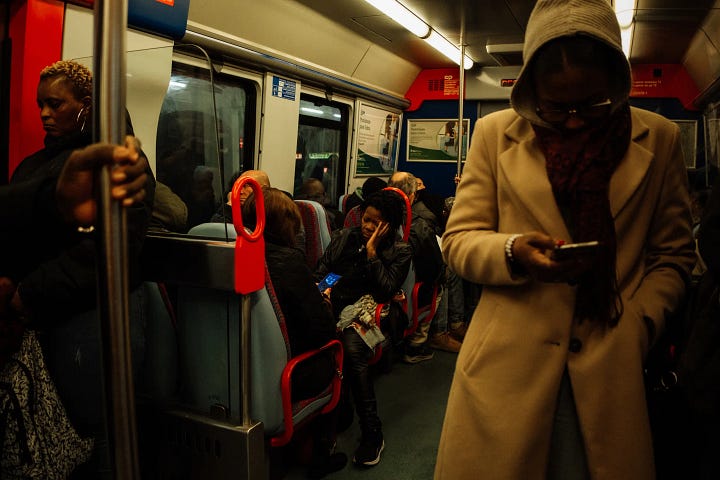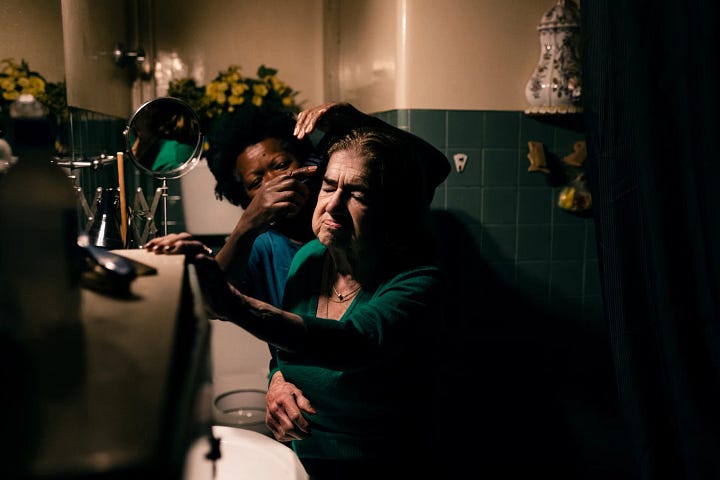Maria Abranches wins World Press Photo award
The project "MARIA" tells the story of an Angolan woman, who was trafficked to Portugal at the age of nine under false promises of education.




Portuguese photographer Maria Abranches has won one of the prestigious World Press Photo 2025 awards for her project "MARIA," a powerful visual narrative that tells the story of Ana Maria Jeremias, an Angolan woman trafficked to Portugal as a child and forced into decades of domestic labor.
The freelance photographer was honored in the “Stories” category for Europe, making her one of the three winners in this division of the world's most prestigious photojournalism contest.
The project "MARIA" sheds light on Ana Maria's journey, who was trafficked from Angola to Portugal at the age of nine under false promises of education.
Instead, she spent over 40 years working in private households, unable to contact her family for more than three decades.
The family that brought her to Portugal changed her name and even her birth date, further erasing her identity.
Raise awareness
Abranches’ work seeks to honor Ana Maria’s life and raise awareness about the silent labor of thousands of women in Europe who share similar experiences.
For Abranches, this subject is deeply personal.
Speaking to Observador, she explained: "I was raised by a woman named Júlia, whose story reminds me of Ana Maria’s. She took on a motherly role for me, providing care far beyond her professional duties. This kind of work is invisible, and my project aims to shine a light on the unseen labor of racialized women, particularly Angolan women, while also challenging Portugal’s colonial legacy."
She hopes the project will encourage discussions on historical reparations and the ongoing impact of colonialism and racism on Portuguese society.
Her work was developed during the 5th Edition of the Masterclass Narrativa, led by award-winning photojournalist Mário Cruz, a two-time World Press Photo winner.
Cruz guided Abranches throughout the project’s creation, from conceptualization to final editing.
Jury’s appraisal
Winning the World Press Photo 2025 award brings significant recognition to Abranches, placing her among the ranks of celebrated Portuguese photojournalists such as Eduardo Gageiro, Pedro Barreira, Daniel Rodrigues, and Mário Cruz.
She regularly collaborates with major publications, including Público, Reuters, and The Guardian.
The jury praised "MARIA" for its emotional depth and complexity, noting how Abranches respectfully connected with her subject, capturing intimate moments that highlight the lingering effects of Portugal’s colonial past.
"Through intimate framing, the photographer reveals symbolic details—reminders of the lasting consequences of Portugal’s colonial history. The work prompts reflection on how this past continues to shape today’s social structures," reads the statement on the World Press Photo website.
The recognition of "MARIA" at this global competition is a milestone in Abranches’ career. The project will be published as a book, available for purchase on her website, with a launch event scheduled for April 27 at Narrativa in Lisbon.
World Press Photo
This year’s World Press Photo contest received nearly 60,000 submissions from 3,778 photographers across 171 countries, with 42 winning entries selected. The awards ceremony will take place on April 17, where the Photo of the Year will also be announced.
Reflecting on the competition’s impact, global jury president Lucy Conticello, director of photography at Le Monde, stated: "The winning images capture struggle and resilience but also human connection and courage. These visually stunning works take us deeper into the stories behind the headlines."
Among the other winning photographs is an iconic image of Brazilian surfer Gabriel Medina riding a wave during the 2024 Olympic Games, taken by Jérôme Brouillet, as well as a powerful shot by Jabin Botsford, documenting the assassination attempt on Donald Trump.
Maria Abranches’ work stands as a testament to the power of documentary photography, using visual storytelling to amplify marginalized voices, spark dialogue, and inspire change.



